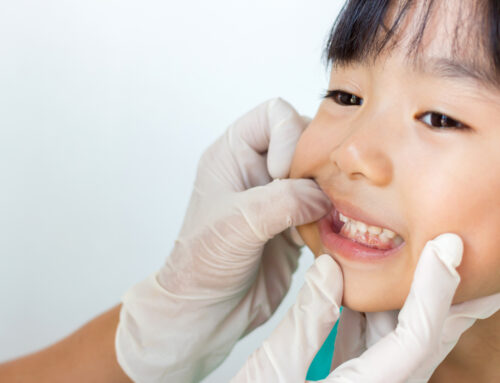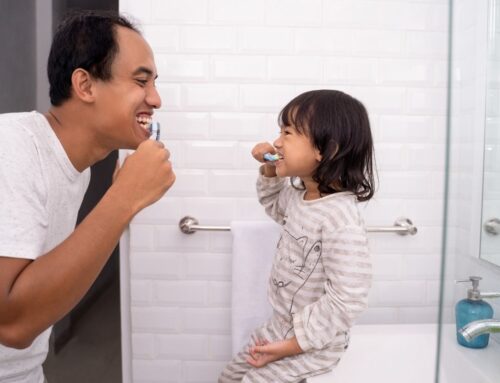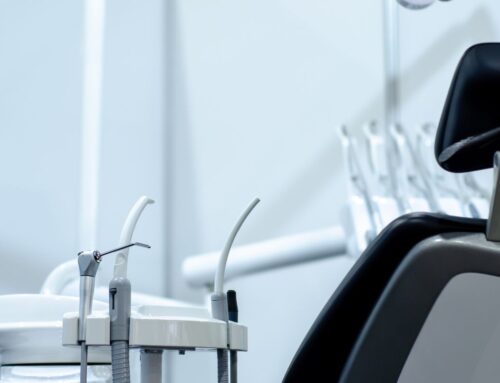Like thumb-sucking, the pacifier is “harmless and helpful” until it isn’t. We want our kids to grow and develop without habits that hold them back or, in the case of pacifiers or digit habits, negatively effect their dental development.
Binkies or pacis can help parents and soothe babies so much, though. It can be challenging to take them away. But the fact is you DO have to take them away. As soon as the first baby teeth begin to emerge, it’s best to start weaning your baby away from the pacifier.
If your child isn’t ready when the first teeth emerge, we strongly recommend that the pacifier should be discontinued by age 2 at the latest.
Dental issues develop when children overuse a binky in his/her mouth. If this habit persists even after the baby teeth have grown in, it may lead to buck teeth (the front teeth protrude over the lower teeth), open bite (the front teeth have a gap and are useless for biting through things), and posterior crossbite (where the upper molars get “sucked” into improper place inside the lower molars from cheek pressure generated with sucking) or a combination of these items.
Techniques for taking away the pacifier
- Find and read books like Bye-Bye Binky: Big Kid Power to introduce the idea.
- Reduce the binky time. Only at bedtime, or only after waking up in the morning for a short amount of time when your child may crave the comfort. Then you keep reducing the binky time until you don’t give it any more and your child learns about other sources of self-soothing and comfort.
- Just do it. Make it disappear. Going cold turkey can take a week or two to work, but your child will soon get used to not having his/her pacis. Distract with toys and other favorite activities.
- Give the pacifier to a favorite friend for safekeeping: let your child choose the stuffed animal. Make a slit somewhere in the toy and put the pacifier inside. Make a ceremony of it with your baby. This way, he/she still has binky, even if it’s not in his/her mouth!
- Begin trimming the pacifier so that it becomes shorter and shorter and the satisfaction generated by sucking is harder to produce. When it becomes really short, most kids will be frustrated by the difficulty involved in keeping it in their mouth and often lose interest.
- Make an event out of stopping and tie it on the pacifier tree in Northville, MI… the first of it’s kind in the USA.
Be confident and consistent. Be happy about it instead of fearful of your child’s reaction. Your baby will imitate you and hopefully willingly and cheerfully say “bye bye binky.”
About Pediatric Dentistry and Orthodontic Specialists of Michigan, the offices of Drs. Plunkett, Ralstrom, Makowski, Thanasas, Ker, and Associates
Pediatric Dentistry and Orthodontic Specialists of Michigan have specialized in pediatric dentistry and orthodontics since 1968. Our family-friendly and newly renovated office gives patients and families a more comfortable and consistent experience with dentistry from the very beginning. Our pediatric dentists treat children from newborn to 18 years of age while our orthodontists provide care for both children and adults and are proud to be Premier Providers of Invisalign and Invisalign Teen services. The ability to treat all patients with compassion and individuality, including those that may have special needs reaches beyond our facility, which has treatment rooms available for children who require additional privacy and customized care options. We pioneered valued hospital affiliations to allow dental services to be performed at DMC Children’s Hospital and St. John Macomb Hospital, when appropriate or necessary, and our specialists are also proud to be on staff at Henry Ford and Beaumont hospitals.





